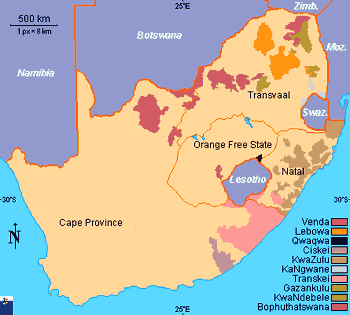
RICHMOND VAThe Dutch East India Company established a small settlement at what is now Cape Town in 1652. Colonization of Western Africa The European scramble to partition and occupy African territory is often treated as a peripheral aspect of the political and economic rivalries that developed between the new industrial nations in Europe itself and that were particularly acute from about 1870 to 1914.

The colonization of South Africa took place in the early 1800s by the British.
Dutch colonization of africa. Along the West Coast of Africa British charter companies clashed with the forces of the Dutch West India Company over rights to slaves ivory and gold in 1663. Less about slaves or ivory the Anglo-Dutch Wars were actually more about who would be the dominant European naval power. The Dutch settlement history in South Africa began in March 1647 with the shipwreck of the Dutch ship Nieuwe Haarlem.
The shipwreck victims built a small fort named Sand Fort of the Cape of Good Hope. They stayed for nearly one year at the Cape. Finally they were rescued by a fleet of 12 ships under the command of WG.
Permanent European settlements were first founded by the Dutch in 1652 unintentionally leading to the creation of a new ethnic group in South Africa with its own language history and ideology and perhaps most notably from a modern perspective its own unique sins. The Dutch East Indies Company and the Founding of Cape Colony. Two regions are of relevance when discussing the presence of Dutch in Africa from a historical perspective ie.
South Africa which also politically included Namibia between 1915 and 1990 and the Belgian Congo now the Democratic Republic of the Congo. The former witnessed the stable presence of Dutch and its gradual developed into Afrikaans from at least 1652 onwards. The Dutch changed the course of South African history culture and identity the moment they first stepped foot in what is now Cape Town.
The history of the Dutch in South Africa is a coin with two sides. Many regard the Dutch settlers as pioneers establishing trade routes as the forefathers of Afrikaner culture. With colonialism which began in South Africa in 1652 came the Slavery and Forced Labour Model.
This was the original model of colonialism brought by the Dutch in 1652 and subsequently exported from the Western Cape to the Afrikaner Republics of the Orange Free State and the Zuid-Afrikaansche Republiek. Many South Africans are the descendents of slaves brought to the Cape Colony from 1653 until 1822. RICHMOND VAThe Dutch East India Company established a small settlement at what is now Cape Town in 1652.
The initial purpose of the settlement was. Indian slaves from the Dutch colonies had been introduced into the Cape area of South Africa by the Dutch settlers in 1654. 60 By the end of 1847 following annexation by Britain of the former Boer republic of Natalia nearly all the Boers had left their former republic which the British renamed Natal.
From the 17th century onwards the Dutch started to colonize many parts of Africa including Ivory Coast Ghana South Africa Angola Namibia and Senegal. According to a report prepared by Anadolu Agency the Dutch began to colonize the African continent from West Africa. With colonialism which began in South Africa in 1652 came the Slavery and Forced Labour Model SAHO sa.
This was the original model of colonialism brought by the Dutch in 1652 and subsequently exported from the Western Cape to the Afrikaner Republics of the Orange Free State and the Zuid-Afrikaansche Republiek SAHO sa. The settlement at the Cape is a good example of a strategic reason for acquiring a colony. As long as the Dutch controlled the Cape they controlled the sea route to the East.
The Dutch built a fort on the Cape peninsula to defend the colony against attack from rival colonial powers. Conquest warfare and early colonialism in the Americas. Colonization of Western Africa The European scramble to partition and occupy African territory is often treated as a peripheral aspect of the political and economic rivalries that developed between the new industrial nations in Europe itself and that were particularly acute from about 1870 to 1914.
The colonization of South Africa took place in the early 1800s by the British. Originally South Africa was discovered by the Portuguese in 1488. This unlike the Dutch settlement in 1652 was not permanent.
Final colonization was taken over by the British which also began a large conflict with the Dutch or the Boers and the English. The Dutch didnt really do much colonizing in Africa. They had a small community they started mostly with retired German security personnel and later at the end of the 1680s with under 200 French Calvinists.
The colonisation and lastly the new nation of South Africa. The colonisation of South Africa The colonisation of South Africa is mostly attributed to the Europeans. A closer investigation however shows that there is more to it than meets the eye.
This is the reason why the colonisation process can actually be divided into.